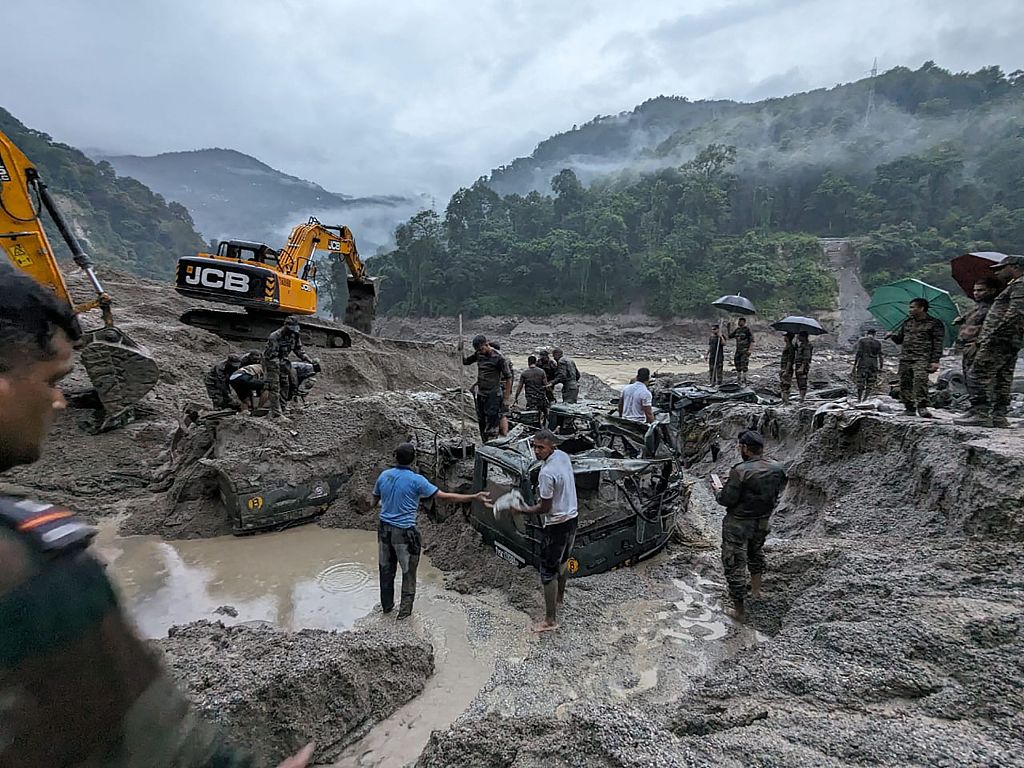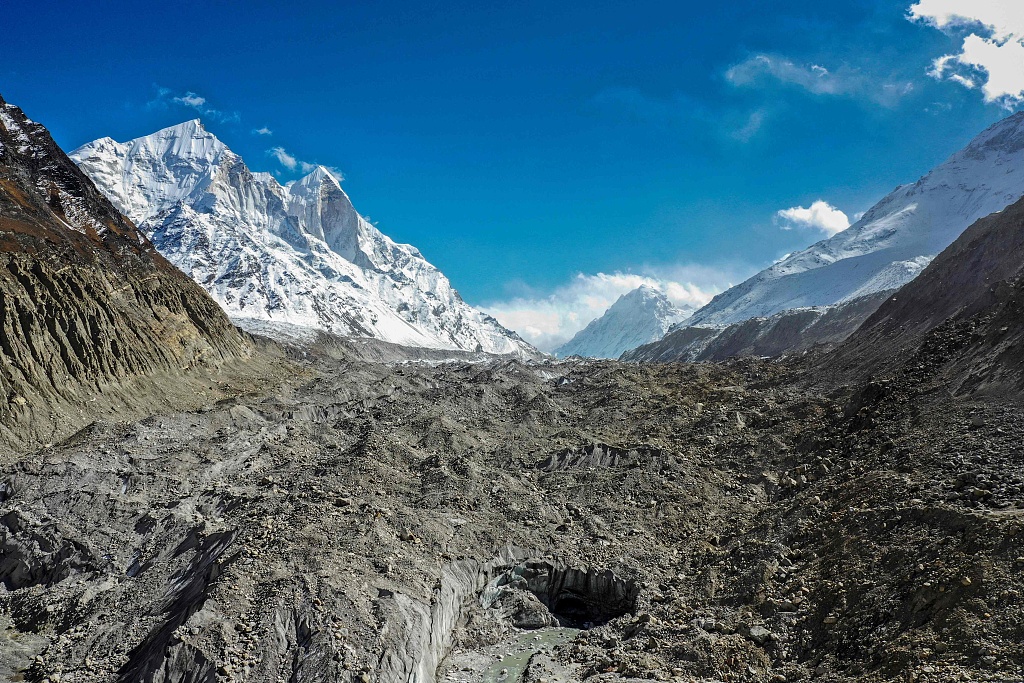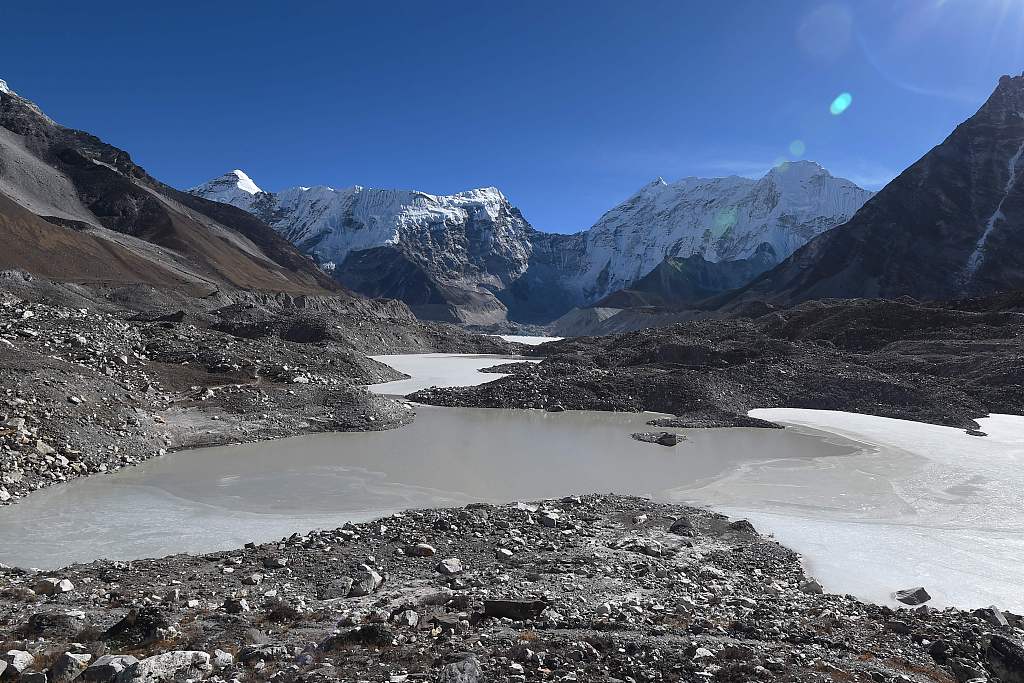India hit by glacial lake outburst floods to get early warning system


Indian army personnel conduct a search operation for the missing soldiers in north Sikkim, India, October 5, 2023. /CFP
Indian army personnel conduct a search operation for the missing soldiers in north Sikkim, India, October 5, 2023. /CFP
Scientists and government authorities were working on an early warning system for glacial floods at a Himalayan lake in northeast India when it broke its banks this week with deadly consequences.
Mountainous Sikkim state plunged into chaos on Wednesday as floods spurred by heavy rain and an avalanche killed at least 18 people. It was one of the worst disasters in the region in 50 years, and more than 100 people remained missing on Thursday.
The first part of the system, a camera to monitor Lhonak Lake’s level and weather instruments, were installed last month, officials involved in the project told Reuters.
If fully operational, the warning system could have given people more time to evacuate, scientists said. One scientist said glacial early warning systems can typically give residents a few minutes to an hour of notice.
Details of the Lhonak Lake warning system have not previously been reported.
“It’s quite absurd, really,” said geoscientist Simon Allen of the University of Zurich who is involved with the project. “The fact it happened just two weeks after our team was there was completely bad luck”.
He said they planned to add a tripwire sensor that would trigger if the lake was about to burst. That would typically be connected to an alert system or siren that would warn residents to immediately evacuate to higher ground.
The monitoring devices were supposed to send data to authorities, but the camera lost power for an unknown reason in late September, according to a source at the Swiss embassy, which supported the project.

This aerial picture shows the Gangotri glacier, believed to be the source of the Ganges River, is in retreat at Gangotri National Park, India, October 19, 2022. /CFP
This aerial picture shows the Gangotri glacier, believed to be the source of the Ganges River, is in retreat at Gangotri National Park, India, October 19, 2022. /CFP

A general view of the Imja glacial lake in the Solukhumbu district, Nepal, November 22, 2018. /CFP
A general view of the Imja glacial lake in the Solukhumbu district, Nepal, November 22, 2018. /CFP
As climate change warms high mountain regions, many communities are facing dangerous glacial lake outburst floods (GLOFs). Lakes holding water from melted glaciers can overfill after heavy rain and burst, sending torrents rushing down mountain valleys.
A 2022 study led by Natalie Lützow of the University of Potsdam on global database of GLOFs found that between 1990 and 2018, global glacier lake volume increased by around 48 percent to 156.5 square kilometers, and lake abundance increased by 53 percent.
The Himalayan glaciers disappeared 65 percent faster since 2010 than in the previous decade and could lose up to 75 percent of their volume by century’s end, according to a 2023 report from the Kathmandu-based International Centre for Integrated Mountain Development (ICIMOD).
In recent years, glacial flood early warning systems have been deployed in Nepal, Pakistan, and Bhutan. The early warning systems at Lhonak Lake, and another at nearby Shako Cho in Sikkim, were to be among the first in India for glacial lake outburst floods, according to Reuters.
Scientists have for years said the two lakes are at risk of outburst floods, but the design process and search for funding caused time to pass without progress.
India plans to install early warning systems at several other glacial lakes, said Kamal Kishore, a senior official at India’s National Disaster Management Authority (NDMA).
He did not answer further questions on the Lhonak project.
However, Farooq Azam, a glaciologist at the Indian Institute of Technology Indore, noted that even if the system had been in place, the potential benefits were not clearcut.
“Such kind of events are so fast that even if we have some kind of early warning system … we may only gain some minutes, maybe an hour,” he said.
(If you have specific expertise and want to contribute, or if you have a topic of interest that you’d like to share with us, please email us at nature@cgtn.com.)
Source(s): Reuters

